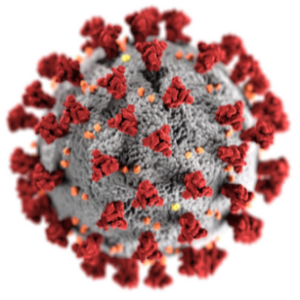
Venezuelan journalists are invited to learn how to use the latest tools to fact-check content and debunk disinformation surrounding the COVID-19 pandemic.
 The Knight Center for Journalism in the Americas, UNESCO and Medianálisis are offering a webinar on the topic for journalists in the South American country on May 17, 2022. Registration is open for the event, which takes place at 5 p.m. Caracas time.
The Knight Center for Journalism in the Americas, UNESCO and Medianálisis are offering a webinar on the topic for journalists in the South American country on May 17, 2022. Registration is open for the event, which takes place at 5 p.m. Caracas time.
During the webinar, Venezuelan journalists will learn about a free self-directed online course in Spanish, “Disinformation in times of COVID-19 in Latin America and the Caribbean,” which is available on the Knight Center’s online learning platform JournalismCourses.org. Students can take the course at their own pace, during the days and times that best suit their schedule.
“Fact-checking isn't an easy task and it is even more difficult to do in countries like Venezuela, where reliable data is hard to be found,” said course instructor Cristina Tardáguila. “In this course, participants will have the chance to not only learn more about this fast-growing part of journalism but also to use the latest tools to debunk content.”
Tardáguila is senior program director at the International Center for Journalists and founder of Brazilian fact-checking site Agência Lupa. She also coordinated the #CoronaVirusFacts Alliance, the biggest collaborative fact-checking project in the world.
During the May 17 webinar, Tardáguila will be joined by Professor Rosental C. Alves, director of the Knight Center for Journalism in the Americas at the University of Texas at Austin, for a conversation about disinformation and fact-checking around COVID-19. Their discussion will be moderated by Andrés Cañizález, director of Medianálisis.
“Venezuela is a nation that experiences lies in censorship, since its information ecosystem is mediated by lies in public discourse, government propaganda that circulates through censored media, and hoaxes that run through social networks. The times of COVID-19 have posed important challenges to clarify the reality about vaccines and demystify the nature of the virus, as well as to deny the miracle cures and conspiracy theories that have been circulating since before the arrival of the pandemic in the country,” said León Hernández, manager at Medianálsis and coordinator of the Venezuelan Observatory of Fake News.
“Medianalisis has a great interest in training communicators through training projects and has done so for 12 years,” he continued. “We thank the Knight Center, UNESCO and the European Union for this learning opportunity that will benefit Venezuelan journalistic practice.”
The self-directed course is also available in English, Guarani, French and Portuguese on JournalismCourses.org.
It was initially offered as a massive open online course (MOOC) taught by Tardáguila from Feb. 15 to March 14, 2021 and offered in Spanish, Portuguese and Guaraní. It was the first time the Knight Center offered a course in an Indigenous language of a Latin American country. Together, the course in three languages attracted 3,235 students from 52 countries.
Journalists and others interested in learning about how to report on COVID-19 can find more resources through the Knight Center’s COVID-19 Courses and Resources online hub. There, you’ll find courses and webinars, briefings and other resources for reporting on the coronavirus pandemic. The Knight Center’s Journalism Courses program worked with UN agencies, specifically UNESCO, the UNDP and WHO, to produce these resources now available in a variety of languages.